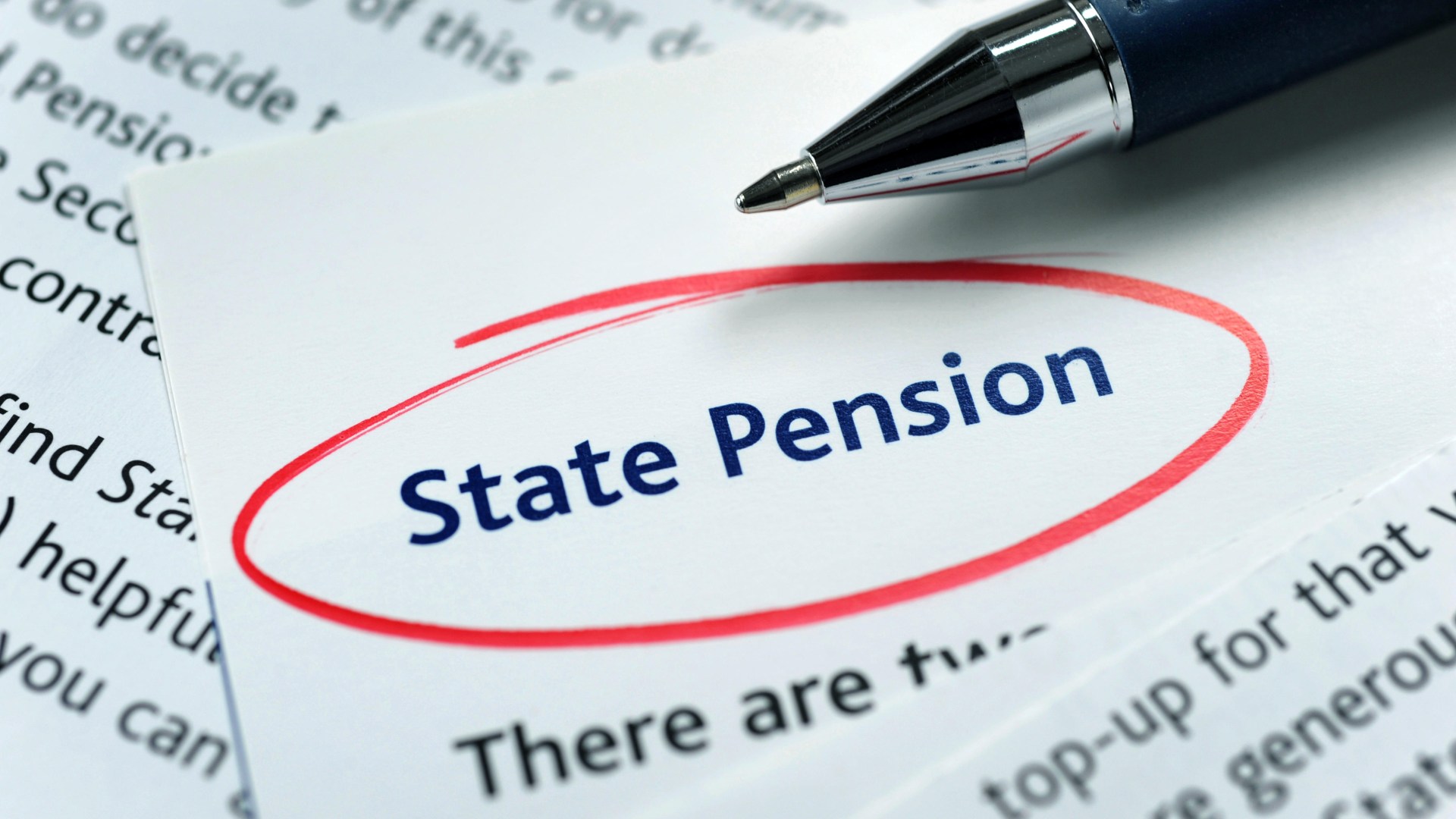Money
Thousands of hard-up households to get £115 free cash direct to bank accounts before Christmas

THOUSANDS of hard-up households could get £115 free cash paid directly into their bank accounts before Christmas.
Struggling households can claim the money through the government’s Household Support Fund (HSF) now.
The HSF was extended for the sixth time from October 1, meaning households can claim help from a fresh £421million pot of funding.
Councils across the country have received a portion of the cash to distribute to those in need.
But there is a postcode lottery to determine who qualifies as each local authority can set its own eligibility criteria.
Despite this if you have a limited amount of money or savings in the bank, or are deemed to be vulnerable or on benefits, you will probably qualify for help.
Money will either be given to you as a direct cash transfer, shopping vouchers, energy support or in another form.
The amount handed out varies and the local council will determine this.
In York people of working age who receive Council Tax Support can apply to receive a payment of £115 directly into their bank account.
Those eligible for the payment will receive a letter this month with the instructions to register.
Those who need assistance with food, energy or water bills who do not receive Council Tax Support or are over pension age can also apply for a discretionary payment.
If you apply for a discretionary payment you will need to complete a means-tested assessment including personal financial information.
If you don’t live in York you should check with your local authority to see what support it is offering.
Rotherham Council is now offering struggling families £250 grants to fight the cost-of-living increase.
Those living in Birmingham can claim £200 to help with soaring winter energy payments.
Meanwhile, Wakefield Council is offering support to pensioners who will miss out on the winter fuel payment this year.
What is the Household Support Fund?
The Household Support Fund was introduced in October 2021 by The Department for Work and Pensions (DWP) to support households most in need.
The funding is distributed between councils, and they are then responsible for dishing out the cash on an application basis.
For example, Birmingham City Council have announced they will hand out free £200 cost of living payments to help its residents cope this winter, as one of its approaches to the fresh fund.
How do I apply?
In order to be eligible for help, you may have to be in receipt of benefits or provide proof of being in financial difficulty.
Each council has a different application process – so you’ll have to ask your local authority or find out via your council’s website.
Not all councils have decided how they will distribute the cash yet, so you may have to wait to get all the information.
To find out how to contact your local authority, use the gov.uk authority tool checker.
In the last round of funding, some residents received their share automatically, while others had to apply.
For example, Haringey London Council is issuing automatic payments to eligible residents, as well as a support fund which can be applied to.
It is also issuing payments to schools, which means they can distribute free school vouchers.
In previous years, other authorities have offered cost of living vouchers – such as Coventry City Council.
This has included a Community Supermarket scheme, where all Coventry residents could pay £5 weekly and receive a basket of food worth up to £25.
Residents of Effingham, near Guildford, have been able to claim up to £300 free cash to help with the cost of living crisis.
Surrey council previously poured £300,000 into food banks, where photo ID and proof of address is required, but no referral needed.
While some schemes, such as the Surrey Crisis Fund, which can offer up to £100 to those immediately in need, are reserved for those who also rely on other means-tested benefits.
How has the Household Support Fund evolved?

The Household Support Fund was first launched in October 2021 to help Brits pay their way through winter amid the cost of living crisis.
Councils up and down the country got a slice of the £421million funding available to dish out to Brits in need.
It was then extended in the 2022 Spring Budget and for a second time in October 2022 to help those on the lowest incomes with the rising cost of living.
The DWP then confirmed a third extension of the scheme through to March 31, 2024.
Former chancellor Jeremy Hunt extended the HSF for the fourth time while delivering his Spring Budget on March 6, 2024.
In September 2024, the Government announced a fifth extension.
Do you have a money problem that needs sorting? Get in touch by emailing money-sm@news.co.uk.
Plus, you can join our Sun Money Chats and Tips Facebook group to share your tips and stories
Money
Workspace sells west London redevelopment site for £20m

Site with consent for residential and light industrial redevelopment was sold for £1m below March book value.
The post Workspace sells west London redevelopment site for £20m appeared first on Property Week.
Money
FCA investigation offers a new hope for protection

 After many years of the regulatory equivalent of a Gaelic shrug towards the protection market, the Financial Conduct Authority has announced a forthcoming study into the sector taking in many areas, perhaps most notably, the three Cs: commission, competition and charging.
After many years of the regulatory equivalent of a Gaelic shrug towards the protection market, the Financial Conduct Authority has announced a forthcoming study into the sector taking in many areas, perhaps most notably, the three Cs: commission, competition and charging.
Understandably, this has set many boardrooms a flutter, as the market’s biggest and best advisers, distributors and providers begin to consider the impact of the study and its findings on their business model.
There will be some who are fearful. Any action from the regulator tends to cause worry. Some are thankful, having been calling for an increase in engagement in protection from the regulator for some time.
There are always processes that can be done better, to deliver better products, better services and better outcomes to customers
There are others, like me, who are hopeful. Hopeful that this study will once and for all shine the light on protection that I, and many others like me, think it deserves.
Name a perfectly functioning market and I’ll prepare to be astounded. Nowhere across financial services, retail and beyond will you find a market perfectly in sync with its customers or internal market stakeholders.
There are always processes that can be done better, to deliver better products, better services and better outcomes to customers.
The fast-food market could easily reduce salt, sugar and fat in its foods and maintain its revenues and standing. Indeed, the sugar tax on soft drinks has proven it possible. But it is yet far from common practice.
The UK is one of – if not the – most price-competitive market in the world. We offer cover at a low price – some might say too low
Closer to home, the general insurance market could, despite regulatory intervention in recent years, ensure all its products deliver value for money on an ongoing basis.
Protection, too, has aspects that could be changed to improve the market and the outcomes it delivers customers. Products could be simpler to understand and deploy to underserved markets. Cover could be more in keeping with modern changing lives – able to flex according to circumstances. Processes at application and claim could be improved from those which, today, are often still legacy; often manual and sometimes opaque.
However, there is masses to celebrate, too. The UK is one of – if not the – most price-competitive market in the world. We offer cover at a low price – some might say too low. We are also continually seeing providers entering new channels and new product lines – helping drive more choice.
This is the growth we need. This is the growth a financially resilient society needs
We have come a long way on process simplicity, too. Yes, we have more to do but insurers, distributors and advisers now have better, more streamlined processes to serve their protection clients – from sourcing the right product at the right premium to accessing GP helplines from the growing set of value-added benefits, now included as standard within most policies.
This, in itself, should be celebrated – providers have made the important step to offer more holistic, ‘always-on’ policies capable of delivering value even when their core purpose (to cover a claim) isn’t required.
Let’s not lose sight of these facts and continue to share them, both together and in public. A connected market is a better market. A positive discourse is better than a negative discourse. Let’s celebrate the things we do well, in private and in public.
As we begin to predict what the study will focus on and what the outcomes for the market will be, I remain hopeful. Ours is a market which performs an important role in society, a role we should ensure we and those who engage with it always appreciate.
Like most markets, there are things we could do better. Many of these things would help us, not necessarily to do more for our customers but to do the same for more customers. This is the growth we need. This is the growth a financially resilient society needs.
Let’s celebrate protection.
Paul Yates is product strategy director at iPipeline
Money
Big state pension update for 120,000 women underpaid by up to £11,905 by DWP – are you owed cash?

THE Department for Work and Pensions (DWP) has issued a major update on the thousands of women affected by a state pension blunder.
Fresh figures show that almost 120,000 women have been short-changed on their state pensions and are owed up to £11,905 each.
The DWP has been undertaking a correction exercise since 2021 to fix these errors.
This blunder affected married women whose husbands reached pension age before 2008, as well as widows and women over 80.
They were entitled to an ‘enhanced pension‘, which could have boosted their payments by up to 60%, but they didn’t receive it at the time.
Your husband must have turned 65 before March 17, 2008 to qualify.
The DWP has now completed payouts to married women and those over 80.
They’ve paid £250.6million to 45,907 married women, with an average payout of £5,591.
Women over 80 have received £68.2million across 33,437 cases, with an average of £2,202 each.
As of November 2024, the DWP is still issuing payments to widows affected by the issue.
So far, £417.2million has been paid to 39,706 widows, with an average of £11,905 each.
It means that in total, 119,050 women are owed up to £11,905 each from the DWP.
The DWP added that it expects to issue payments owed to all remaining widows by the end of 2024.
However, this isn’t the only type of state pension underpayment blunder affecting retirees.
Sarah Coles, head of personal finance at Hargreaves Lansdown, said: “The number of people who have been underpaid their state pension is shocking.
“And this isn’t the final number either, because the DWP hasn’t finished uncovering the full extent of underpayments yet.
“The government is still carrying out a review, going through everyone who might have been underpaid, so you don’t need to apply to be part of this process.”
The DWP will contact you directly if you’re affected by the error.
You must respond to any communications to ensure you receive a repayment.
STATE PENSION ERRORS
STEVE Webb, partner at LCP and former Pensions Minister, explains what state pension errors are and how they can occur…
The way state pensions are worked out is so complicated that many thousands of people have been paid the wrong amount for years without even realising it.
The amount of retirement pension you get usually depends on your National Insurance (NI) record.
One big source of errors has been cases where NI records have been incorrect, particularly for years spent at home with children.
This is a system known as ‘Home Responsibilities Protection’.
Alternatively, particularly for older pensioners, the amount you get can depend on the NI contributions made by your spouse.
Errors have arisen where the Government has failed to adjust the pensions of married women when their husbands retired or failed to increase pensions when someone was bereaved and lost a husband or wife.
Although the Government has spent years trying to fix these problems, there are still many thousands of people – many of them older women – on the wrong pension.
If you have always thought that your pension seems low, then it is worth contacting the Pensions Service to ask them to check, especially if you spent time at home raising children or if you were widowed and your pension didn’t change when your spouse died.
UPDATE ON OTHER ERRORS
The government has also shared progress on correcting Home Responsibilities Protection (HRP) errors.
From January 8 to September 30, 2024, the DWP identified 5,344 cases of underpayment, amounting to around £42million in total arrears.
This issue affected individuals who took time off work to care for children or someone with a disability between 1978 and 2010.
The problem arose because child benefit claim forms submitted before 2000 often didn’t include a National Insurance number, meaning the relevant HRP information wasn’t transferred from the child benefit system to the National Insurance system.
HRP would have added credits that counted towards their state pension, much like National Insurance credits work today.
As a result, thousands missed out on state pension benefits worth an average of £5,000.
If you have missing payments, you can complete a CF411 form to add the credits to your record.
You might also be eligible to apply if any of the following situations apply to you:
- You were caring for a child while your partner claimed child benefit instead of you.
- You were receiving Income Support because you were caring for someone who was sick or disabled.
- You were caring for a sick or disabled person who was claiming certain benefits.
If your partner claimed child benefit, you might be able to transfer the HRP credits, but they will need to agree.
For example, if you were a stay-at-home parent and your working partner claimed the child benefit, they can transfer the credits to you.
Your payments will be recalculated if you have missing HRP credits and have already reached state pension age.
Any missing money will be backdated and paid to you as a lump sum.
An expert recently revealed that more pensioners could be owed cash but have been unable to claim.
How does the state pension work?
AT the moment the current state pension is paid to both men and women from age 66 – but it’s due to rise to 67 by 2028 and 68 by 2046.
The state pension is a recurring payment from the government most Brits start getting when they reach State Pension age.
But not everyone gets the same amount, and you are awarded depending on your National Insurance record.
For most pensioners, it forms only part of their retirement income, as they could have other pots from a workplace pension, earning and savings.
The new state pension is based on people’s National Insurance records.
Workers must have 35 qualifying years of National Insurance to get the maximum amount of the new state pension.
You earn National Insurance qualifying years through work, or by getting credits, for instance when you are looking after children and claiming child benefit.
If you have gaps, you can top up your record by paying in voluntary National Insurance contributions.
To get the old, full basic state pension, you will need 30 years of contributions or credits.
You will need at least 10 years on your NI record to get any state pension.
TRACK DOWN ERRORS
LCP has developed an online tool to help people understand what state pension they are entitled to inherit on top of their own state pension at go.lcp.com/inheritingstatepension.
A tool previously launched by the company to help married women check for underpayments had over one million visits.
The DWP also has a tool to help those receiving the new state pension assess their eligibility for inherited state pension amounts at gov.uk/state-pension-through-partner.
There is also a guide on inheriting or increasing a state pension at gov.uk/new-state-pension/inheriting-or-increasing-state-pension-from-a-spouse-or-civil-partner.
A DWP spokesperson said: “We want to ensure pensioners receive all the support to which they are entitled and have a tool to help them understand what state pension they can inherit.
“Delays can occur to a customer state pension award when not all the information we need is provided.
“In these cases, we will make a state pension award based on the customer’s own national insurance record until we have the required information.
“Once we have the necessary documentation, we will then revise the customer’s claim as soon as possible.”
Money
Firms in the dark on commercial pensions dashboards delivery date


Firms seeking to operate commercial pensions dashboards services (PDS) have no timescale when this will happen despite the Financial Conduct Authority publishing rules they must follow when designing and operating them.
FCA set out rules for pensions dashboards service firms in a policy statement published yesterday (7 Nov.)
They include expectations that firms will act “fairly, honestly and professionally in consumers’ best interests and deliver good consumer outcomes consistent with the Consumer Duty”.
And that the service firms offer “must be fit for purpose and help consumers make effective choices and act in their own interests”.
The FCA stressed that it wants PDS to be platforms where consumers can “confidently and positively engage with their pensions and be safely supported in retirement planning.”
It added that the rules, which were considered following consultations with stakeholders, are “proportionate” for the first iteration of commercial pensions dashboards.
However, FCA failed to give a timescale when firms will be able to operate pensions dashboards services.
Rachel Vahey, head of public policy at AJ Bell, said the lack of timescale is a “huge let down for customers”.
She said: “This statement is helpful but leaves the pensions industry with only a set of rules and no definitive timescale for when commercial dashboards will become a reality. Setting a clear date for commercial dashboards would allow providers to start planning in earnest. The development of dashboards has already been a bumpy ride with numerous stops and starts, and changes in who is responsible for getting it over the starting line.”
Earlier this year, the government changed the law to bring the new activity of operating a pension dashboard service within the FCA’s regulatory remit.
This legislative change means that a firm wishing to operate a PDS must become FCA authorised, get permission to undertake the new regulated activity and meet its requirements for firms undertaking this activity.
Last month Emma Reynolds, the pensions minister, confirmed that initially people will only be able to access their information by going through the Pensions Dashboard run by the government’s Money and Pension Service (MaPS).
Money
Major update for parents on baby formula prices after Iceland boss slammed high costs

THOUSANDS of parents are paying more than they need to for baby milk because of a lack of competition in the market, a government watchdog has warned.
At the moment there are two dominant baby formula companies – Danone and Nestle – who make up 85% of all sales.
As a result, there is little incentive for these manufacturers to compete to offer the best price, the Competition and Markets Authority (CMA) warned.
The news comes after the boss of Iceland Richard Walker last year hit out at “exploitation” of new parents and called for action to be taken in the industry.
Over the past few years it has become more expensive to manufacture infant formula and these costs have been passed on directly to customers.
Parents often choose baby formula for the first time when they are in vulnerable situations such as in hospital straight after birth.
Often they make the choice when they do not have access to clear, accurate and impartial information, the watchdog warned.
Parents are also often under a lot of pressure to do what is best for their baby.
As a result, they can often choose a more expensive product as they assume that a higher price will mean it is better quality.
This is not true as the NHS advises that “it does not matter what brand you choose, they’ll all meet your baby’s nutritional needs, regardless of price”.
Parents also often listen to advice from friends and family when choosing a formula, which means the brand’s reputation plays a much larger role in the decision making.
Sarah Cardell, chief executive of the CMA, said it is concerned that companies “don’t compete strongly on price”.
She added: “We have identified options for change, but now want to work closely with governments in all parts of the UK, as well as other stakeholders, as we develop our final recommendations.”
The CMA has set out several potential options which could help to improve the industry and reduce the cost for parents.
It wants to provide new parents with clear, accurate and impartial information, for example in hospitals.
The CMA may also allow companies to publicise their prices and price reductions, which they are currently not allowed to do.
How to save on your supermarket shop
THERE are plenty of ways to save on your grocery shop.
You can look out for yellow or red stickers on products, which show when they’ve been reduced.
If the food is fresh, you’ll have to eat it quickly or freeze it for another time.
Making a list should also save you money, as you’ll be less likely to make any rash purchases when you get to the supermarket.
Going own brand can be one easy way to save hundreds of pounds a year on your food bills too.
This means ditching “finest” or “luxury” products and instead going for “own” or value” type of lines.
Plenty of supermarkets run wonky veg and fruit schemes where you can get cheap prices if they’re misshapen or imperfect.
For example, Lidl runs its Waste Not scheme, offering boxes of 5kg of fruit and vegetables for just £1.50.
If you’re on a low income and a parent, you may be able to get up to £442 a year in Healthy Start vouchers to use at the supermarket too.
Plus, many councils offer supermarket vouchers as part of the Household Support Fund.
It also wants to strengthen labelling and advertising rules as branding is a large part of the reason that parents choose a certain product.
This could be done by requiring manufacturers to use entirely different branding for their infant and follow-on formula.
The CMA may also implement stricter rules around certain messages on packaging.
In the long term the government may also be forced to take more significant action to bring down costs, such as introducing price caps.
The CMA will publish a final report on baby formula in February 2025.
What help is there for parents?
If you receive certain benefits and are pregnant or have at least one child under the age of four then you can apply for Healthy Start vouchers.
You will get:
- £4.25 each week of your pregnancy
- £8.50 each week for children from birth to one year old
- £4.25 each week for children between one and four years old
The money will stop after your child’s fourth birthday or if you no longer receive benefits.
If you are eligible you will be sent a Healthy Start card with money on it that you can use in some UK shops.
The money will be added onto this card every four weeks.
You can use the card to buy:
- Plain liquid cow’s milk
- Fresh, frozen and tinned fruit and vegetables
- Fresh, dried and tinned pulses
- Infant formula milk based on cow’s milk
To be eligible for the scheme you must be receiving one of the following benefits:
- Income support
- Income-based jobseeker’s allowance
- Child tax credit if your family’s annual income is £16,190 or less, and not getting working tax credit
- Universal credit if your family’s monthly earned income is £408 or less from employment
- Pension credit
You can apply for the scheme on the NHS website.
Do you have a money problem that needs sorting? Get in touch by emailing money-sm@news.co.uk.
Plus, you can join our Sun Money Chats and Tips Facebook group to share your tips and stories
Money
The Morning Briefing: Firms in the dark on pensions dashboards delivery date and closing the advice gap


Good morning and welcome to your Morning Briefing for Friday 8 November 2024. To get this in your inbox every morning click here.
Firms in the dark on commercial pensions dashboards delivery date
Firms seeking to operate commercial pensions dashboards services (PDS) have no timescale when this will happen despite the Financial Conduct Authority publishing rules they must follow when designing and operating them.
FCA set out rules for pensions dashboards service firms in a policy statement published yesterday (7 Nov.)
Rachel Vahey, head of public policy at AJ Bell, said the lack of timescale is a “huge let down for customers”.
Closing the advice gap
How do we close the advice gap?
That’s the million-dollar question I’ve heard debated time and again since I joined Money Marketing.
The consensus is that artificial intelligence and the introduction of new technology will free up advisers’ time and enable them to take on and serve more clients.
But could it be the banks that hold the key to closing the gap?
Quote Of The Day
There are some more bullish voices out there, including Goldman Sachs who have forecast UK base rate to fall to just 2.75% by next Autumn. The fact the decision to cut rates was almost unanimous will put some powder in this argument.
-Laith Khalaf, head of investment analysis at AJ Bell, comments on latest interest rate decision from the Bank of England.
Stat Attack
Research from Canada Life reveals the UK cities with the highest proportion of adults who do not have a will in place. Leeds, Sheffield, and Nottingham top the list. While
people in Brighton, Cardiff, London, and Newcastle are the most prepared when it comes to making a will. However a significant number still have nothing in place.
49%
of the population have discussed their end-of-life wishes with their loved ones. While
44%
have not written a will, nor are they currently in the process of doing so. When asked why they do not have a will in place,
26%
said they do not have enough assets or wealth to warrant making a will, closely followed by
20%
who believe they still have plenty of time to make one. And
15%
do not want to pay to write a will, while
14%
believe their loved ones will inherit their assets automatically.
Source: Canada Life
In Other News
The Pension Protection Fund (PPF) has published its fifth Responsible Investment report, which reinforces its commitment to promoting sustainability in the pensions industry and demonstrates the power industry engagement and collaboration across its asset managers, portfolio companies, industry bodies and peers has had over the last 12 months.
The annual report summarises the stewardship and governance activities carried out by the PPF that have not only driven greater participation and engagement industry wide, but also have improved reporting, risk analysis, transparency and driving positive change.
Barry Kenneth, chief investment officer at the PPF said: “The last 12 months has been a period of evolution and engagement, and this report outlines our continued commitment to align with the Stewardship Code, showcasing the steps we have taken and measures we have advanced to protect and drive value across our portfolio.
Isio, a provider of pensions and employee benefits consultancy, has announced the launch of its new individual service designed to streamline support for NHS employees affected by the McCloud pensions tax roll-back.
The McCloud remedy addresses age discrimination in the 2015 public service pension reforms. It involves rolling back the 2015 scheme benefits into the previous final salary schemes for affected public sector members.
But many senior NHS staff will have to also revisit up to seven years of self-assessment tax forms by 31 January 2025 (or 3 months after being notified if later).
The new service will help these NHS Pension Scheme members, who will receive a Remediable Pension Savings Statement (RPSS), to collect the required data and submit it to HMRC.
Isio’s service manages the entire process, allowing members to easily claim tax refunds where appropriate (and in some cases pay additional tax charges). The service is to be also available for senior police employees affected by the same issue.
From Elsewhere
Bond rebound uncertain as Trump plans overshadow Fed rate cuts (Reuters)
AI may displace 3m jobs but long-term losses ‘relatively modest’ (The Guardian)
Warren Buffett’s Apple share sales and cash pile spark intrigue over motives (Financial Times)
Did You See?
Greg Neall, chartered financial planner at Wake Up Your Wealth, chides journalists, experts, and commentators over their “scaremongering” articles in the lead up to the autumn Budget.
He writes: It’s impossible to count the number of headlines written over the last few months declaring the 25% tax-free pension lump sum was in danger of being scrapped in last week’s Budget to boost clicks and comments.
Anyone with a working brain and the slightest bit of political nous could see there was no way the chancellor would do something so politically suicidal, especially after the Winter Fuel Allowance fiasco. Shame on those claiming it was ever likely.
There was also a glut of poorly-researched pieces on how the lump sum allowance might come down to £100,000.
Read the full article here.
-

 Science & Environment2 months ago
Science & Environment2 months agoHow to unsnarl a tangle of threads, according to physics
-

 Technology1 month ago
Technology1 month agoIs sharing your smartphone PIN part of a healthy relationship?
-

 Science & Environment2 months ago
Science & Environment2 months agoHyperelastic gel is one of the stretchiest materials known to science
-

 Science & Environment2 months ago
Science & Environment2 months ago‘Running of the bulls’ festival crowds move like charged particles
-

 Technology2 months ago
Technology2 months agoWould-be reality TV contestants ‘not looking real’
-

 Science & Environment1 month ago
Science & Environment1 month agoX-rays reveal half-billion-year-old insect ancestor
-

 Sport1 month ago
Sport1 month agoAaron Ramsdale: Southampton goalkeeper left Arsenal for more game time
-

 Money1 month ago
Money1 month agoWetherspoons issues update on closures – see the full list of five still at risk and 26 gone for good
-

 MMA1 month ago
MMA1 month ago‘Dirt decision’: Conor McGregor, pros react to Jose Aldo’s razor-thin loss at UFC 307
-

 Science & Environment2 months ago
Science & Environment2 months agoPhysicists have worked out how to melt any material
-

 Science & Environment2 months ago
Science & Environment2 months agoMaxwell’s demon charges quantum batteries inside of a quantum computer
-

 Science & Environment2 months ago
Science & Environment2 months agoSunlight-trapping device can generate temperatures over 1000°C
-

 Football1 month ago
Football1 month agoRangers & Celtic ready for first SWPL derby showdown
-

 Science & Environment2 months ago
Science & Environment2 months agoLaser helps turn an electron into a coil of mass and charge
-

 News1 month ago
News1 month agoWoman who died of cancer ‘was misdiagnosed on phone call with GP’
-
Business1 month ago
how UniCredit built its Commerzbank stake
-

 News1 month ago
News1 month ago‘Blacks for Trump’ and Pennsylvania progressives play for undecided voters
-

 Technology1 month ago
Technology1 month agoUkraine is using AI to manage the removal of Russian landmines
-

 Technology1 month ago
Technology1 month agoGmail gets redesigned summary cards with more data & features
-

 Science & Environment2 months ago
Science & Environment2 months agoA new kind of experiment at the Large Hadron Collider could unravel quantum reality
-

 Science & Environment2 months ago
Science & Environment2 months agoLiquid crystals could improve quantum communication devices
-

 Science & Environment2 months ago
Science & Environment2 months agoWhy this is a golden age for life to thrive across the universe
-

 Technology1 month ago
Technology1 month agoSamsung Passkeys will work with Samsung’s smart home devices
-

 Sport1 month ago
Sport1 month agoBoxing: World champion Nick Ball set for Liverpool homecoming against Ronny Rios
-

 Technology1 month ago
Technology1 month agoEpic Games CEO Tim Sweeney renews blast at ‘gatekeeper’ platform owners
-

 Science & Environment2 months ago
Science & Environment2 months agoQuantum ‘supersolid’ matter stirred using magnets
-

 Technology1 month ago
Technology1 month agoRussia is building ground-based kamikaze robots out of old hoverboards
-

 Sport1 month ago
Sport1 month ago2024 ICC Women’s T20 World Cup: Pakistan beat Sri Lanka
-

 News1 month ago
News1 month agoMassive blasts in Beirut after renewed Israeli air strikes
-

 Entertainment1 month ago
Entertainment1 month agoBruce Springsteen endorses Harris, calls Trump “most dangerous candidate for president in my lifetime”
-

 MMA1 month ago
MMA1 month agoDana White’s Contender Series 74 recap, analysis, winner grades
-

 News1 month ago
News1 month agoNavigating the News Void: Opportunities for Revitalization
-

 Technology1 month ago
Technology1 month agoMicrosoft just dropped Drasi, and it could change how we handle big data
-

 MMA1 month ago
MMA1 month agoPereira vs. Rountree prediction: Champ chases legend status
-

 MMA1 month ago
MMA1 month ago‘Uncrowned queen’ Kayla Harrison tastes blood, wants UFC title run
-

 Technology1 month ago
Technology1 month agoMicrophone made of atom-thick graphene could be used in smartphones
-

 Technology1 month ago
Technology1 month agoCheck, Remote, and Gusto discuss the future of work at Disrupt 2024
-

 Sport1 month ago
Sport1 month agoWXV1: Canada 21-8 Ireland – Hosts make it two wins from two
-

 News1 month ago
News1 month agoRwanda restricts funeral sizes following outbreak
-
Business1 month ago
Top shale boss says US ‘unusually vulnerable’ to Middle East oil shock
-

 Business1 month ago
Business1 month agoWater companies ‘failing to address customers’ concerns’
-

 Technology1 month ago
Technology1 month agoSingleStore’s BryteFlow acquisition targets data integration
-

 TV1 month ago
TV1 month agoসারাদেশে দিনব্যাপী বৃষ্টির পূর্বাভাস; সমুদ্রবন্দরে ৩ নম্বর সংকেত | Weather Today | Jamuna TV
-

 Science & Environment2 months ago
Science & Environment2 months agoQuantum forces used to automatically assemble tiny device
-

 Technology1 month ago
Technology1 month agoWhy Machines Learn: A clever primer makes sense of what makes AI possible
-

 News2 months ago
News2 months ago▶️ Hamas in the West Bank: Rising Support and Deadly Attacks You Might Not Know About
-

 Technology2 months ago
Technology2 months agoMeta has a major opportunity to win the AI hardware race
-

 News1 month ago
News1 month agoCornell is about to deport a student over Palestine activism
-

 Business1 month ago
Business1 month agoWhen to tip and when not to tip
-

 MMA1 month ago
MMA1 month agoKayla Harrison gets involved in nasty war of words with Julianna Pena and Ketlen Vieira
-

 News1 month ago
News1 month agoHull KR 10-8 Warrington Wolves – Robins reach first Super League Grand Final
-

 Science & Environment2 months ago
Science & Environment2 months agoITER: Is the world’s biggest fusion experiment dead after new delay to 2035?
-

 Science & Environment2 months ago
Science & Environment2 months agoNuclear fusion experiment overcomes two key operating hurdles
-

 Football1 month ago
Football1 month ago'Rangers outclassed and outplayed as Hearts stop rot'
-

 MMA1 month ago
MMA1 month agoPennington vs. Peña pick: Can ex-champ recapture title?
-

 Technology1 month ago
Technology1 month agoLG C4 OLED smart TVs hit record-low prices ahead of Prime Day
-
Travel1 month ago
World of Hyatt welcomes iconic lifestyle brand in latest partnership
-

 Sport1 month ago
Sport1 month agoShanghai Masters: Jannik Sinner and Carlos Alcaraz win openers
-

 Science & Environment2 months ago
Science & Environment2 months agoA slight curve helps rocks make the biggest splash
-

 Technology1 month ago
Technology1 month agoUniversity examiners fail to spot ChatGPT answers in real-world test
-

 News1 month ago
News1 month ago▶ Hamas Spent $1B on Tunnels Instead of Investing in a Future for Gaza’s People
-

 Sport1 month ago
Sport1 month agoChina Open: Carlos Alcaraz recovers to beat Jannik Sinner in dramatic final
-

 Football1 month ago
Football1 month agoWhy does Prince William support Aston Villa?
-

 Sport1 month ago
Sport1 month agoPremiership Women’s Rugby: Exeter Chiefs boss unhappy with WXV clash
-

 Money1 month ago
Money1 month agoTiny clue on edge of £1 coin that makes it worth 2500 times its face value – do you have one lurking in your change?
-

 Technology1 month ago
Technology1 month agoMusk faces SEC questions over X takeover
-

 Sport1 month ago
Sport1 month agoSturm Graz: How Austrians ended Red Bull’s title dominance
-

 Sport1 month ago
Sport1 month agoCoco Gauff stages superb comeback to reach China Open final
-

 Science & Environment2 months ago
Science & Environment2 months agoNerve fibres in the brain could generate quantum entanglement
-

 Womens Workouts2 months ago
Womens Workouts2 months ago3 Day Full Body Women’s Dumbbell Only Workout
-
Business1 month ago
Bank of England warns of ‘future stress’ from hedge fund bets against US Treasuries
-

 Technology1 month ago
Technology1 month agoQuoroom acquires Investory to scale up its capital-raising platform for startups
-
Business1 month ago
Italy seeks to raise more windfall taxes from companies
-

 MMA1 month ago
MMA1 month ago‘I was fighting on automatic pilot’ at UFC 306
-

 Sport1 month ago
Sport1 month agoURC: Munster 23-0 Ospreys – hosts enjoy second win of season
-

 MMA1 month ago
MMA1 month agoHow to watch Salt Lake City title fights, lineup, odds, more
-

 TV1 month ago
TV1 month agoTV Patrol Express September 26, 2024
-

 News1 month ago
News1 month agoGerman Car Company Declares Bankruptcy – 200 Employees Lose Their Jobs
-

 Sport1 month ago
Sport1 month agoWales fall to second loss of WXV against Italy
-

 Science & Environment2 months ago
Science & Environment2 months agoTime travel sci-fi novel is a rip-roaringly good thought experiment
-

 News2 months ago
News2 months ago▶️ Media Bias: How They Spin Attack on Hezbollah and Ignore the Reality
-

 Science & Environment2 months ago
Science & Environment2 months agoHow to wrap your mind around the real multiverse
-
Business1 month ago
DoJ accuses Donald Trump of ‘private criminal effort’ to overturn 2020 election
-

 Technology1 month ago
Technology1 month agoJ.B. Hunt and UP.Labs launch venture lab to build logistics startups
-

 Technology1 month ago
Technology1 month agoAmazon’s Ring just doubled the price of its alarm monitoring service for grandfathered customers
-
Business1 month ago
Sterling slides after Bailey says BoE could be ‘a bit more aggressive’ on rates
-
Business1 month ago
‘Let’s be more normal’ — and rival Tory strategies
-

 News1 month ago
News1 month agoHarry vs Sun publisher: ‘Two obdurate but well-resourced armies’
-

 Technology1 month ago
Technology1 month agoThe best shows on Max (formerly HBO Max) right now
-

 Sport1 month ago
Sport1 month agoNew Zealand v England in WXV: Black Ferns not ‘invincible’ before game
-

 Technology4 weeks ago
Technology4 weeks agoNintendo’s latest hardware is not the Switch 2
-

 Football1 month ago
Football1 month agoFifa to investigate alleged rule breaches by Israel Football Association
-
Business1 month ago
The search for Japan’s ‘lost’ art
-

 MMA1 month ago
MMA1 month agoKetlen Vieira vs. Kayla Harrison pick, start time, odds: UFC 307
-

 Technology1 month ago
Technology1 month agoIf you’ve ever considered smart glasses, this Amazon deal is for you
-

 MMA1 month ago
MMA1 month agoKevin Holland suffers injury vs. Roman Dolidze
-

 Sport1 month ago
Sport1 month agoAmerica’s Cup: Great Britain qualify for first time since 1964
-

 Sport1 month ago
Sport1 month agoFans say ‘Moyes is joking, right?’ after his bizarre interview about under-fire Man Utd manager Erik ten Hag goes viral
-

 MMA1 month ago
MMA1 month agoUFC 307’s Ketlen Vieira says Kayla Harrison ‘has not proven herself’
-

 News1 month ago
News1 month agoTrump returns to Pennsylvania for rally at site of assassination attempt




You must be logged in to post a comment Login